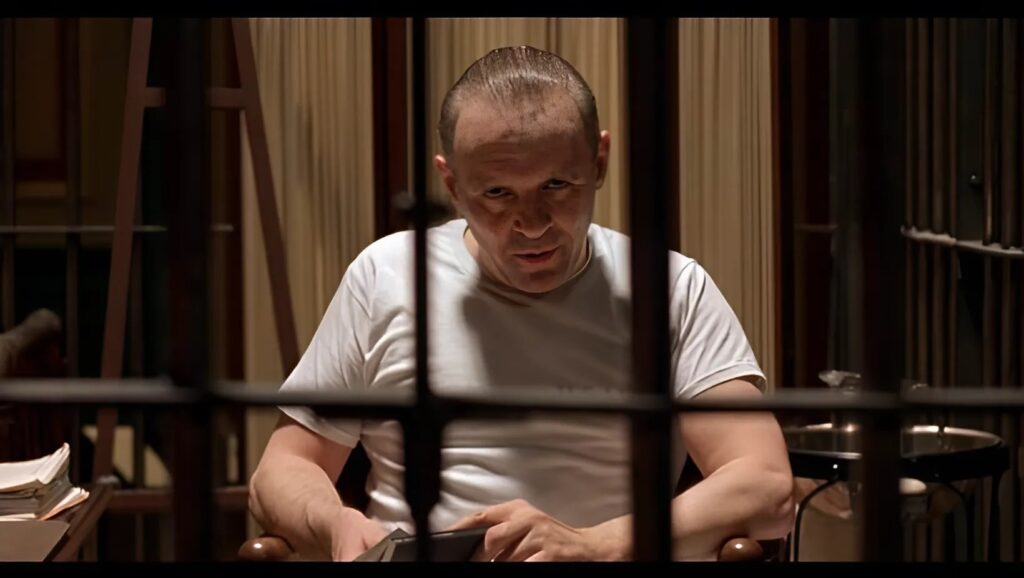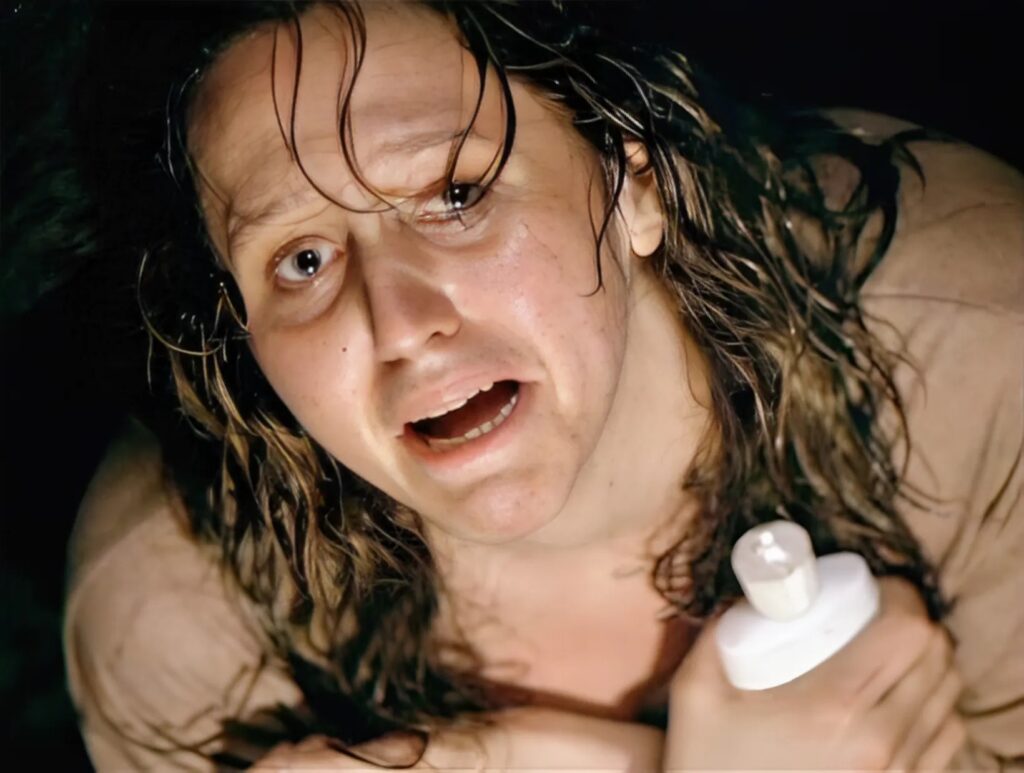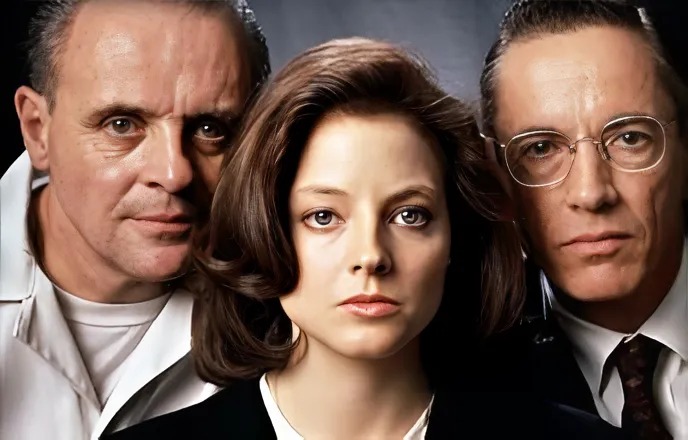Directed by Jonathan Demme, The Silence of the Lambs (1991) is a psychological thriller that transcends its genre, delivering a chilling, intelligent, and unforgettable cinematic experience. Adapted from Thomas Harris’ novel, this Oscar-sweeping masterpiece remains a benchmark for suspense.
Jodie Foster stars as Clarice Starling, a young FBI trainee tasked with interviewing the brilliant but terrifying cannibalistic psychiatrist, Dr. Hannibal Lecter (Anthony Hopkins), to catch a serial killer known as Buffalo Bill (Ted Levine). The cat-and-mouse game between Clarice and Lecter is the film’s pulse, blending dread with fascination.
Foster’s portrayal of Clarice is riveting—vulnerable yet resolute, her determination shining through every tense encounter. Hopkins, despite limited screen time, delivers a career-defining performance as Lecter, his calm menace and piercing intellect making him one of cinema’s greatest villains. Levine’s unsettling Buffalo Bill adds another layer of terror, while the ensemble, including Scott Glenn, grounds the story in gritty realism.

Demme’s direction is flawless, using close-ups and subjective camera angles to heighten unease, particularly in Clarice’s interactions with Lecter. The film’s pacing is relentless, balancing psychological depth with heart-pounding suspense. Howard Shore’s haunting score and Tak Fujimoto’s moody cinematography amplify the oppressive atmosphere.

The Silence of the Lambs is a rare thriller that’s as thought-provoking as it is thrilling, exploring themes of gender, power, and morality. It won five Oscars—Best Picture, Director, Actor, Actress, and Adapted Screenplay—for good reason. Its influence on pop culture and the genre is undeniable.

Rating: 5/5 stars
A chilling, brilliantly crafted thriller that’s as captivating today as it was in 1991.